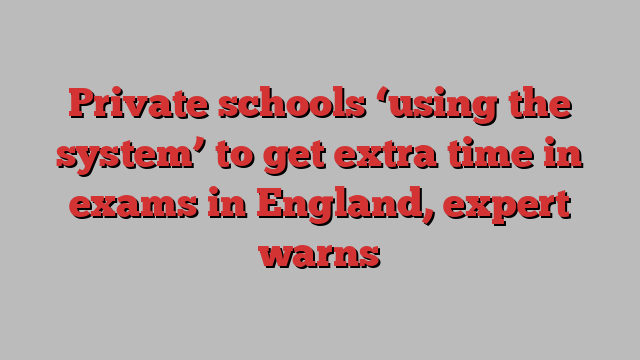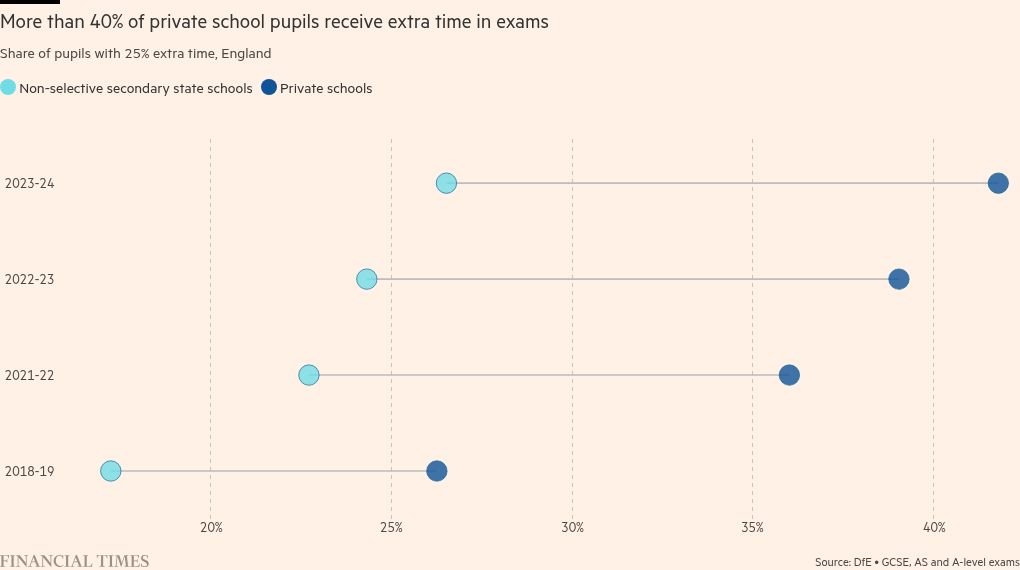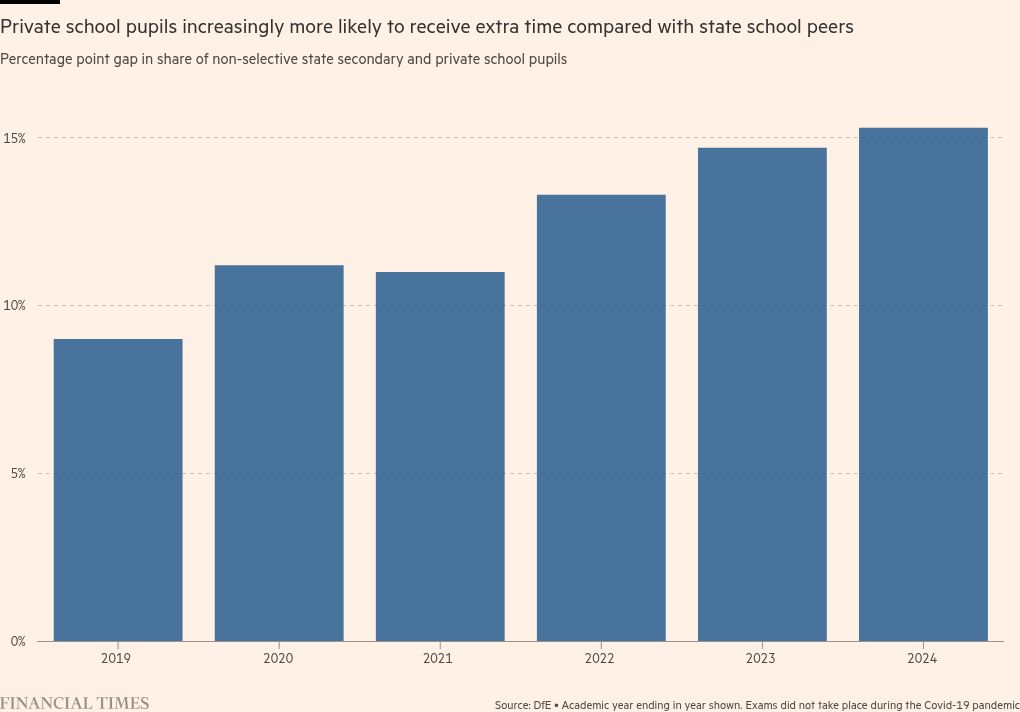
Unlock the Editor’s Digest for free
Roula Khalaf, Editor of the FT, selects her favourite stories in this weekly newsletter.
The gap between the share of privately educated and state-educated students in England claiming extra time in GCSE and A-level exams has widened.
Forty-two per cent of students enrolled in independent schools received extra time in the 2023-24 academic year, compared with 26 per cent of pupils in non-selective state schools, according to data published by Ofqual on Thursday.
The gap of 16 percentage points is the largest since England’s exam regulator began collecting data in 2018-19, when 26 per cent of private school students and 17 per cent of state school students claimed extra time for GCSEs and A-levels.
The system of access arrangements for exams, which is overseen by Ofqual, allows candidates to receive 25 per cent more time if they have a condition such as dyslexia or ADHD.
In a 60-minute exam, a student claiming extra time would have 75 minutes, for example. Students can receive more than 25 per cent extra time in extenuating circumstances.
Jon Andrews, head of analysis at the Education Policy Institute think-tank, said the data reflected how private schools had more resources than state counterparts to support students.
“Independent schools already get much higher results than other pupils elsewhere, but if you are being given additional time in exams, that is going to materially improve outcomes,” he said.

Separate official data published in June showed 22 per cent of private school pupils required support for special educational needs (SEN) in the last academic year, compared with almost 16 per cent of state secondary students.
Andrews said the disproportionate number of privately educated pupils receiving extra time compared with the number of SEN students registered pointed to independent schools being better at “using the system”.
Education secretary Bridget Phillipson told the Financial Times she had spoken to Ofqual about the issue and that it was examining “the range of reasons that might be driving this and whether any policy response is required”.
“It’s a real concern to me there is such a big divide between the state and private system,” said Phillipson, adding that she wanted to make sure state-educated pupils were receiving the support they needed and that Ofqual would look at “why so many children require this support”.

Some 277,630 students across private and non-selective state schools in England received 25 per cent extra time in the 2023-24 academic year, up from 249,340 in 2022-23, according to Ofqual. Of these, 235,560 were enrolled in non-selective state schools.
In 2023-24, there were 888,160 students taking exams in non-selective state secondary schools and 100,600 in private schools.
Education Policy Institute analysis of 2024 GCSE results found that 48.4 per cent of grades achieved in independent schools were Grade 7 or above, compared with just 19.4 per cent in state schools. Nine is the highest grade.
Official data shows a widening advantage gap, with private schools pulling further ahead both in exam results and progression to university.
Ofqual said: “There are many factors that could contribute to the overall rise in access arrangements and there are many reasons why schools and colleges apply for them.
“It is important that students receive the access arrangements they need to allow them to demonstrate what they know, understand and can do,” it added.